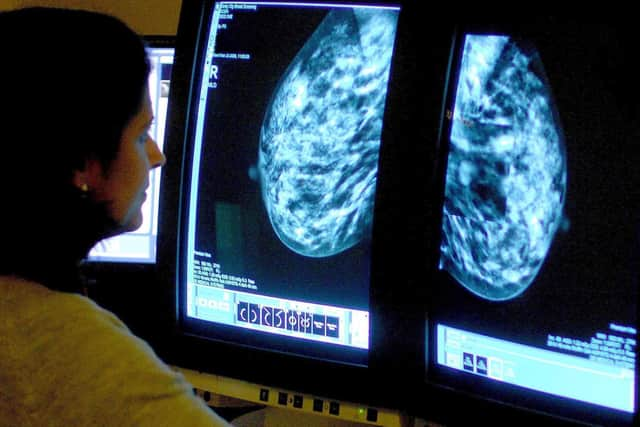Better cancer treatment has dramatically increased survival rates but an early diagnosis is key – Dr Gwenetta Curry
This article contains affiliate links. We may earn a small commission on items purchased through this article, but that does not affect our editorial judgement.
Recent cancer data indicates that there are about 375,000 new cancer cases in the UK every year. Breast, prostate, lung, and bowel cancers together account for more than half of all new cancer cases in the UK. Cancer rates and diagnosis vary by age, gender, and ethnicity across the UK but most of the available data are from England and Wales.
Breast cancer is the most common cancer among women with more than 56,000 new cases in 2019. Prostate cancer is the most common cancer among men with more than 50,000 cases in 2019. Black men are diagnosed with prostate cancer at 2.1 times the rate of their white counterparts.
Advertisement
Hide AdAdvertisement
Hide AdAccording to the charity Breast Cancer Now, “around 25 per cent of Black African women and 22 per cent of Black Caribbean women [found to have breast cancer] are diagnosed with stage-three or stage-four breast cancer at diagnosis in England”, compared to 13 per cent of white women. Black women in England aged 15 to 64 had significantly lower survival from breast cancer at one year (96 per cent) and three years (85 per cent) compared to white women (98 per cent at one year, 91 per cent at three years). South Asian women aged 15 to 64 also had significantly reduced survival (89 per cent) at three years compared to white women. Black and Asian people have consistently had lower rates of melanoma skin cancer than white people.


Choosing between work and treatment
The evidence is clear that early detection increases the patient’s chance of survival and attending screenings plays a key role in the detection. Cancer Research UK has identified various barriers to screening uptake with stigma and juggling work or caring responsibilities being linked to lower screening uptake.
Some of these barriers are connected to socioeconomic status, with the need to work potentially clashing with potential treatment schedules. Those who are living in the most deprived areas also have challenges with travel and childcare costs, which contributes to the lower rate of attending screenings as well as follow-up treatments. Although the screening doesn’t take that long, the travel to the clinic and long waiting times can cause a loss of wages that some people cannot afford.
The incidence of cancer is the highest among people who are between the ages of 85 and 89 and every year more than a third of all cancer cases in the UK are diagnosed in people ages 75 and over. Over half of the people diagnosed with cancer in England and Wales survive their disease for ten years or more, with the survival rate doubling in the last 50 years in the UK.
Patients with early diagnosis have been shown to have substantial improvements in survival due to better surgery and chemotherapy. Advancements in treatments have also significantly improved the quality of life for cancer survivors so it is important for patients to access the appropriate treatment.
The barriers that have been identified are not unique to cancer patients but impact everyone seeking medical care. There should not be a stigma attached to being ill as most illnesses are out of one's control. As our bodies age, sometimes we need a bit of help to keep things on track.
Dr Gwenetta Curry is an Edinburgh University reader in race, ethnicity and health
Comments
Want to join the conversation? Please or to comment on this article.
